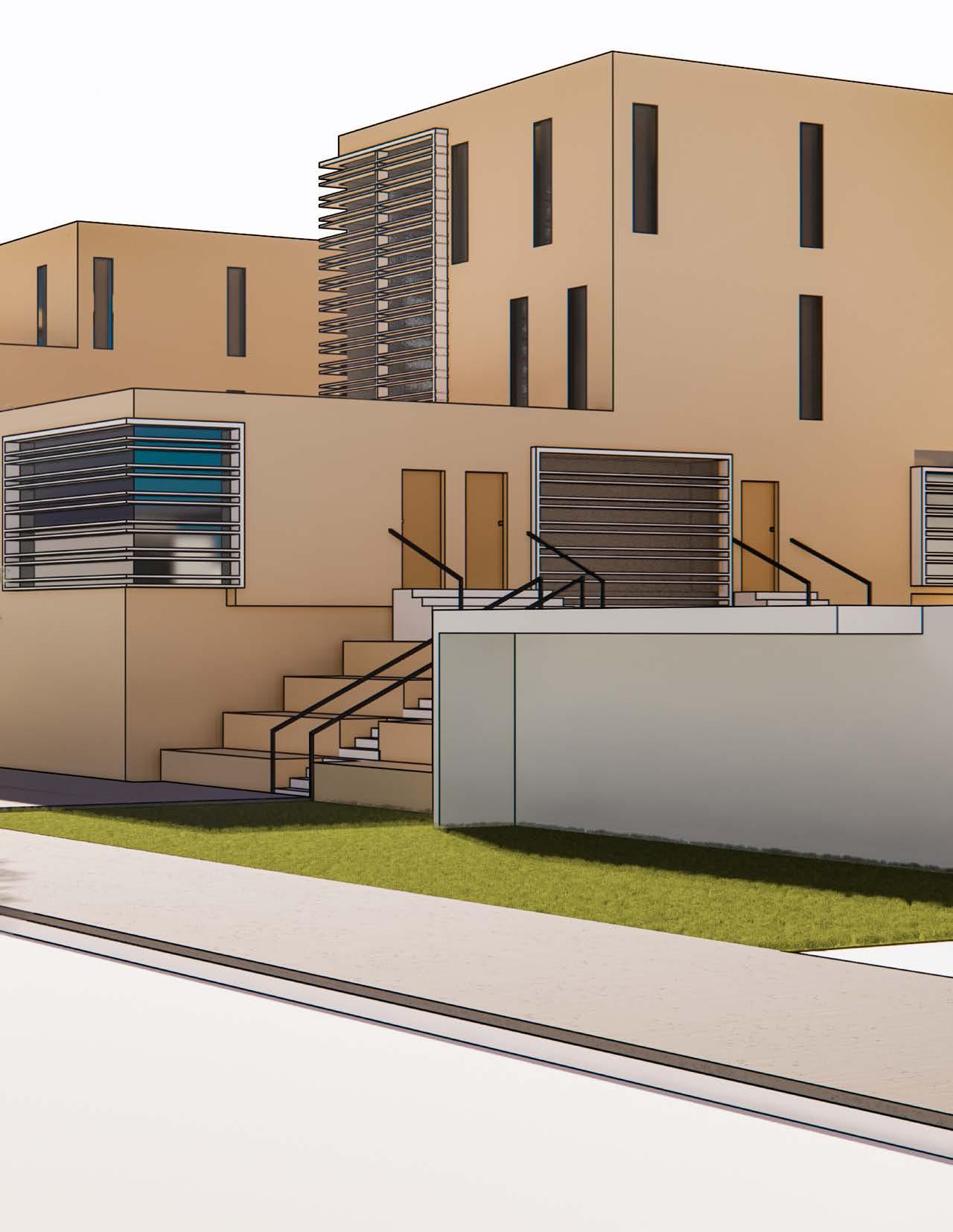

Table of Contents
The Orbit
Fiumicino Airport Terminal 3 Renovation
Rome, Italy
5th year
Left Over Space
Adaptive Ramp Project
Fayetteville, Arkansas 4th year
Greenwood Intersection
Library - Integrated Design Studio
Greenwood, Arkansas
4th year
Bizmuth 83
Office Building
Los Angeles, California 3rd year
Block Parti
Housing Project
Los Angeles, California 3rd year
The Orbit
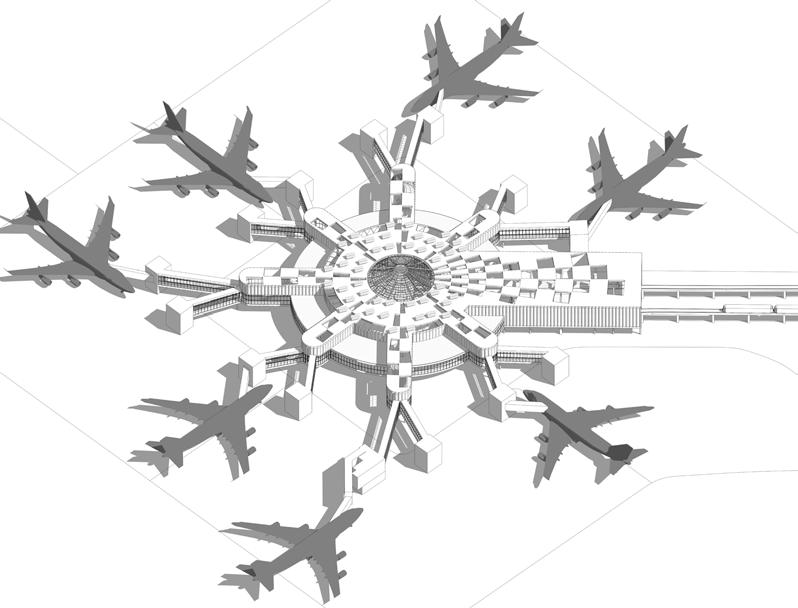
This project, more than just a renovation, is a reimagining of airport aesthetics and functionality, converging modern sustainability principles with the needs of a busy international hub. At its core, the design hinges on maximizing natural light, a decision born from an extensive tour and consultations with the airport’s engineering team. The centerpiece of this architectural marvel is a glass cone structure, reminiscent of the Museum of Contemporary Art of Trento and Rovereto, which elegantly dominates the terminal’s central space. This space, expansive and double-height, is arranged in a circular pattern, facilitating effortless navigation and creating a visually captivating experience for travelers.
Access to this satellite terminal remains the same. It uses the current train that runs from the main airport terminals. The terminal’s layout thoughtfully segregates arrivals and departures, catering to its non-Schengen status. Arrivals ascend through escalators to a panoramic upper floor, encircling the central area, and are then guided to customs in the main airport. Departures, in contrast, are funneled from the main terminal by train, entering the heart of the satellite terminal, surrounded by a plethora of amenities including restaurants, stores, and tranquil green spaces, all under the mesmerizing umbrella of the glass cone. The roof, adorned with solar panels, and the strategic placement of skylights throughout the terminal, are testaments to the project’s sustainability ethos, harnessing renewable energy and natural illumination.
Location:Rome,Italy
Studio:ArchitecturalDesign-Rome
Professor:FrancescoBedeschi&VanessaMingozzi
SoftwarePrograms:Revit,Rhino,Enscape3D,Grasshopper,AdobePhotoshop,andIllustrator


 1st Floor Plan
1st Floor Plan









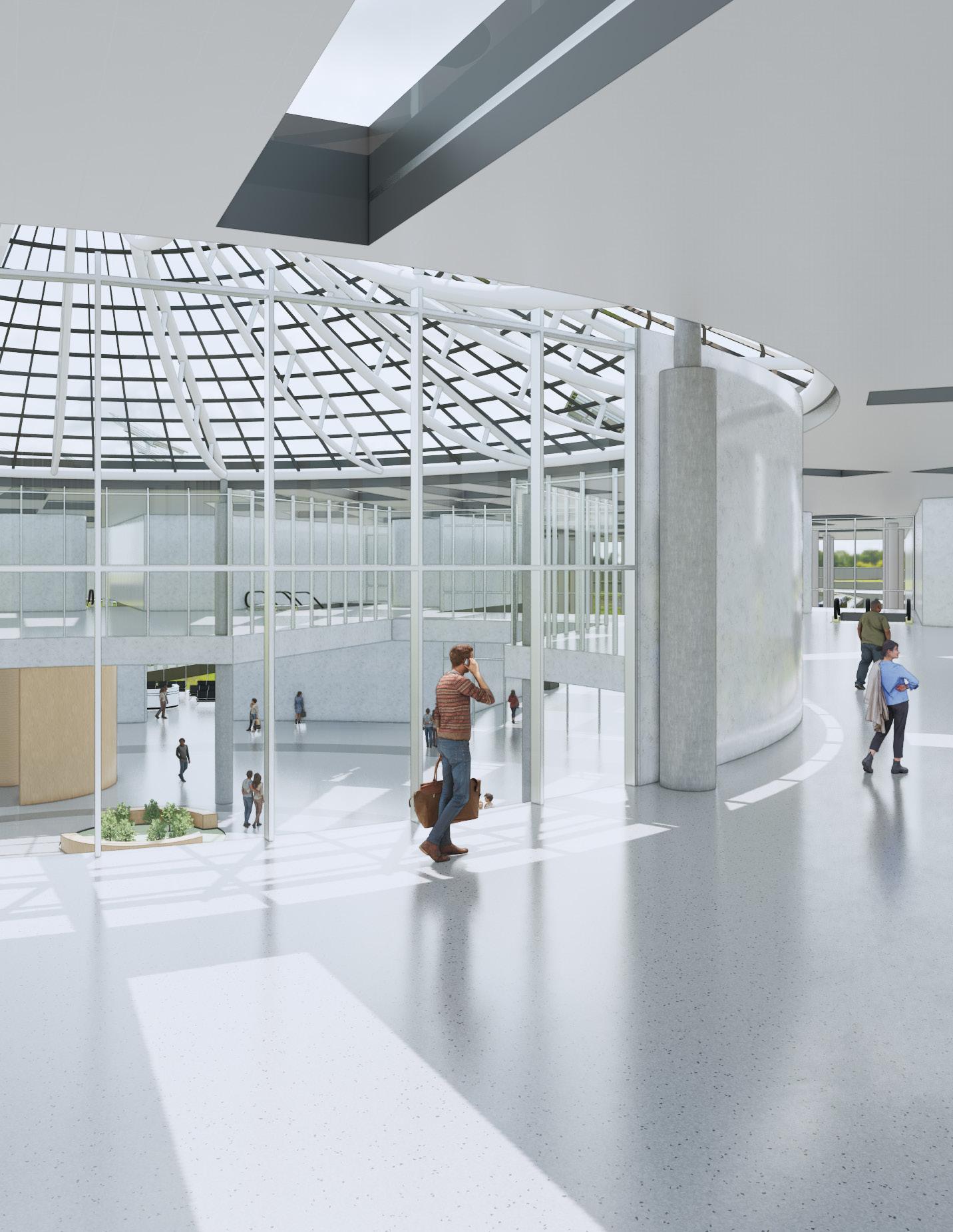
Left Over Space


This Adaptive Ramp Project explores the integration of habitable spaces within a dynamic environment by utilizing an innovative, wooden ramp structure. This multilevel building features a continuous, spiraling ramp that adapts to its surroundings by accommodating fluctuating conditions. The design optimizes the often-neglected spaces beneath the ramps, transforming them into functional floors. These adaptable spaces foster a sense of resilience and adaptability, encouraging inhabitants to embrace the constant flux of their environment. Crafted from sustainable wood materials, the Adaptive Ramp Project demonstrates a unique architectural approach, merging form, function, and environmental responsiveness in an elegant, organic structure. This project, led by Jeremy Smith from Irving Smith Architects, emphasized adaptability and sustainability. The project delves into the question of whether architecture can ever be considered complete. It explores the concept of buildings existing within an everevolving environment. It is structured into six distinct designs, with each subsequent design occurring a decade after the previous one, allowing for an evolution and adaptation to the site over time.

Location:Fayetteville,Arkansas
Studio:Chchchchchchanges(ProfessionalStudioI)
Professor:JeremySmith(visitingprofessorfromFNZIA)&AlexandraWaller
SoftwarePrograms:Revit,Rhino,Enscape3D,Grasshopper,Cura,AdobePhotoshop,and Illustrator





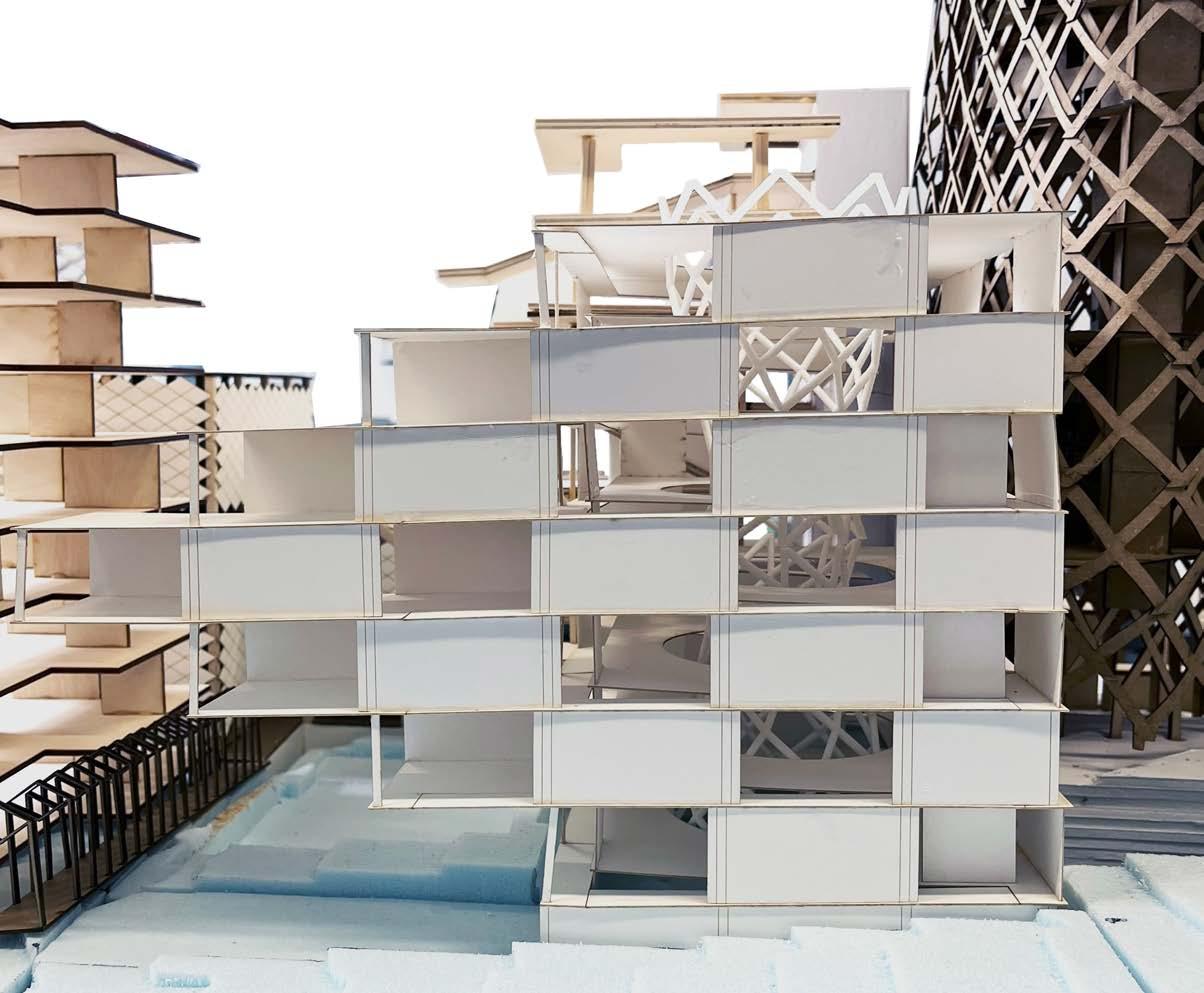
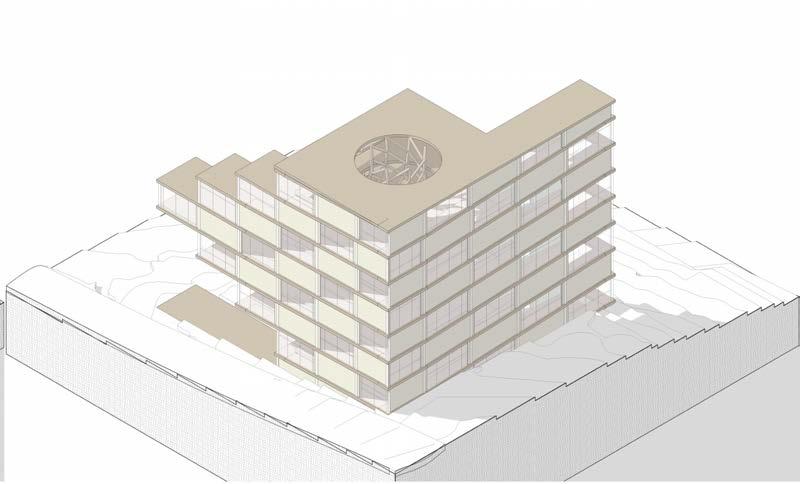
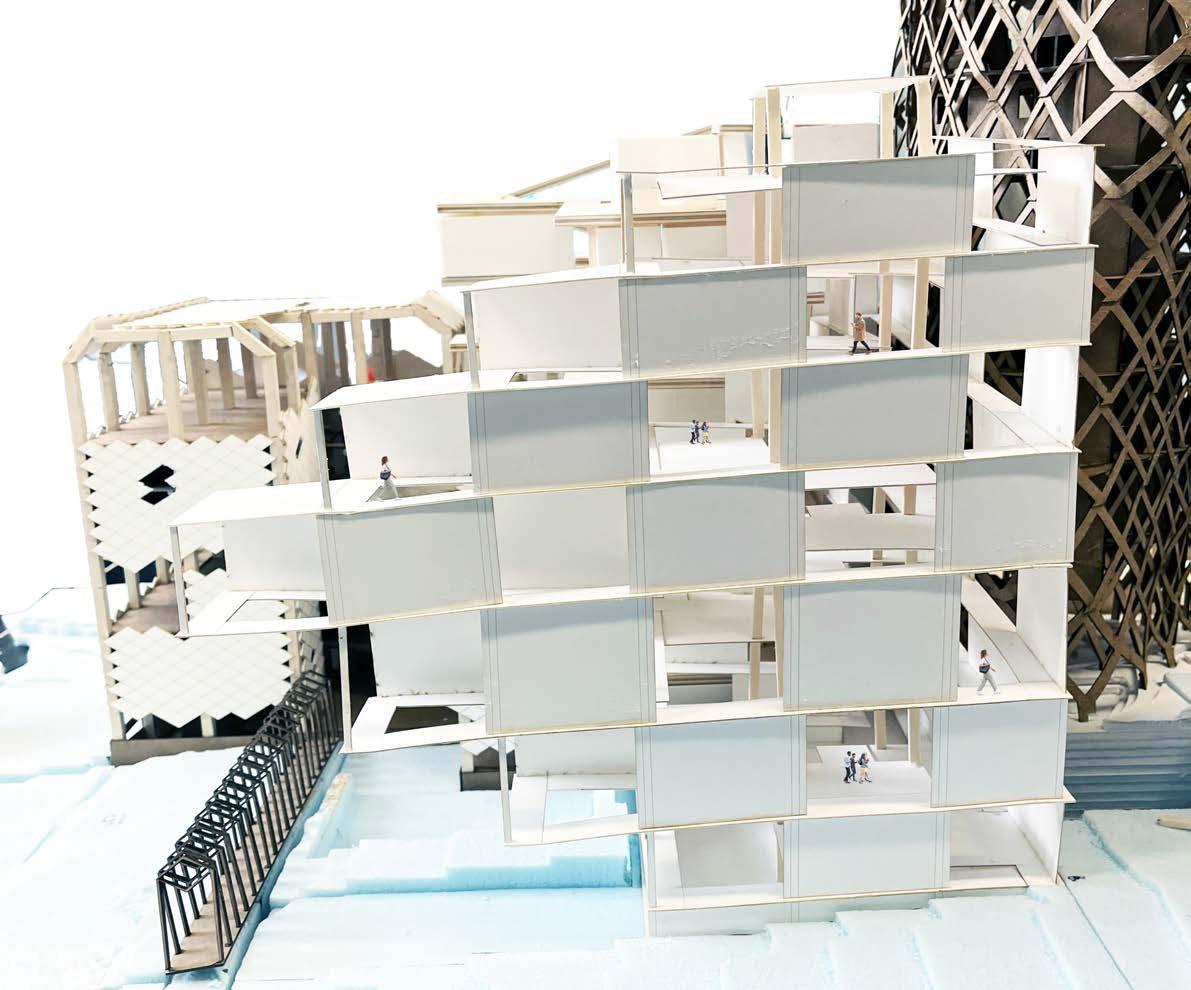

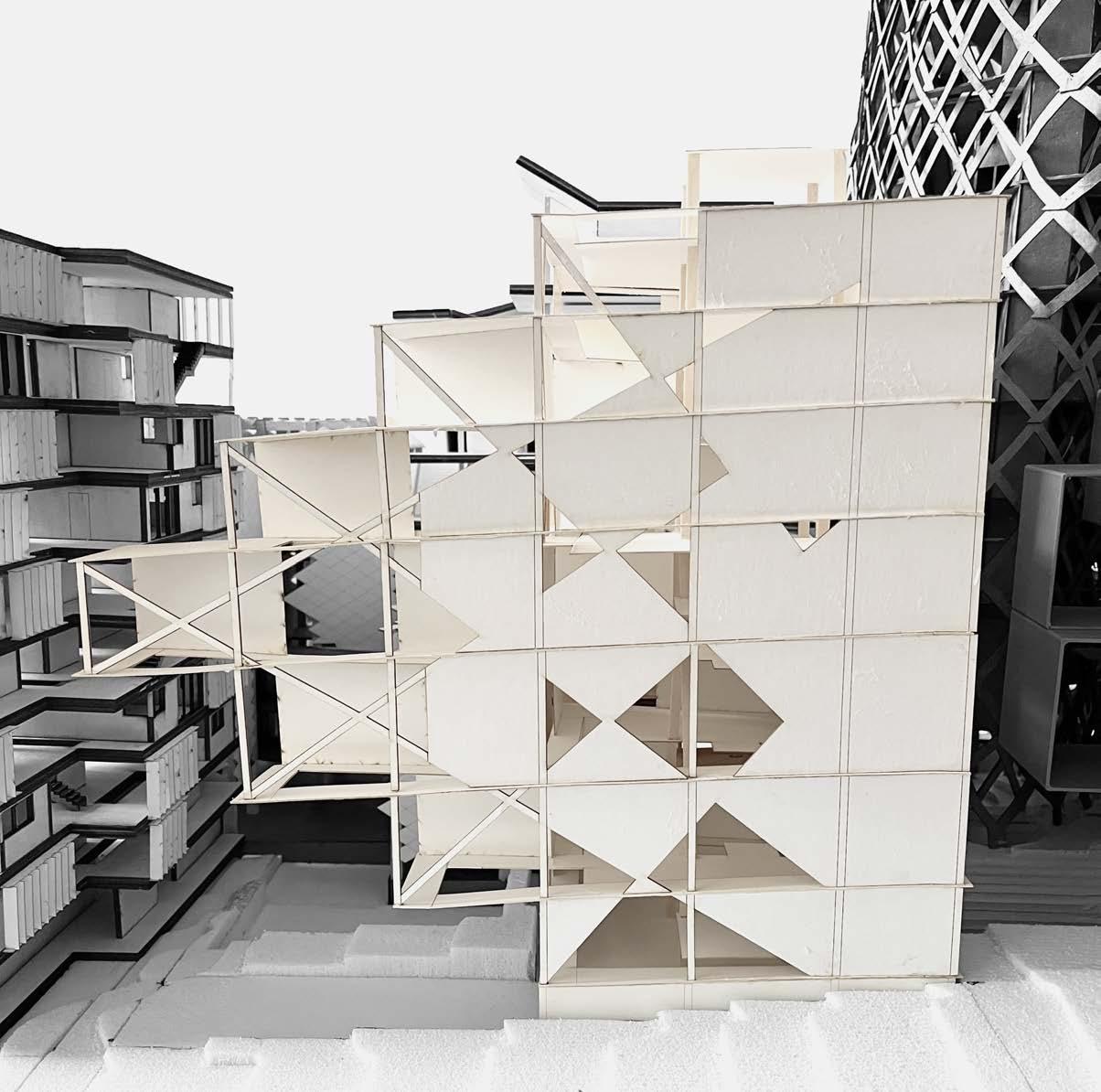

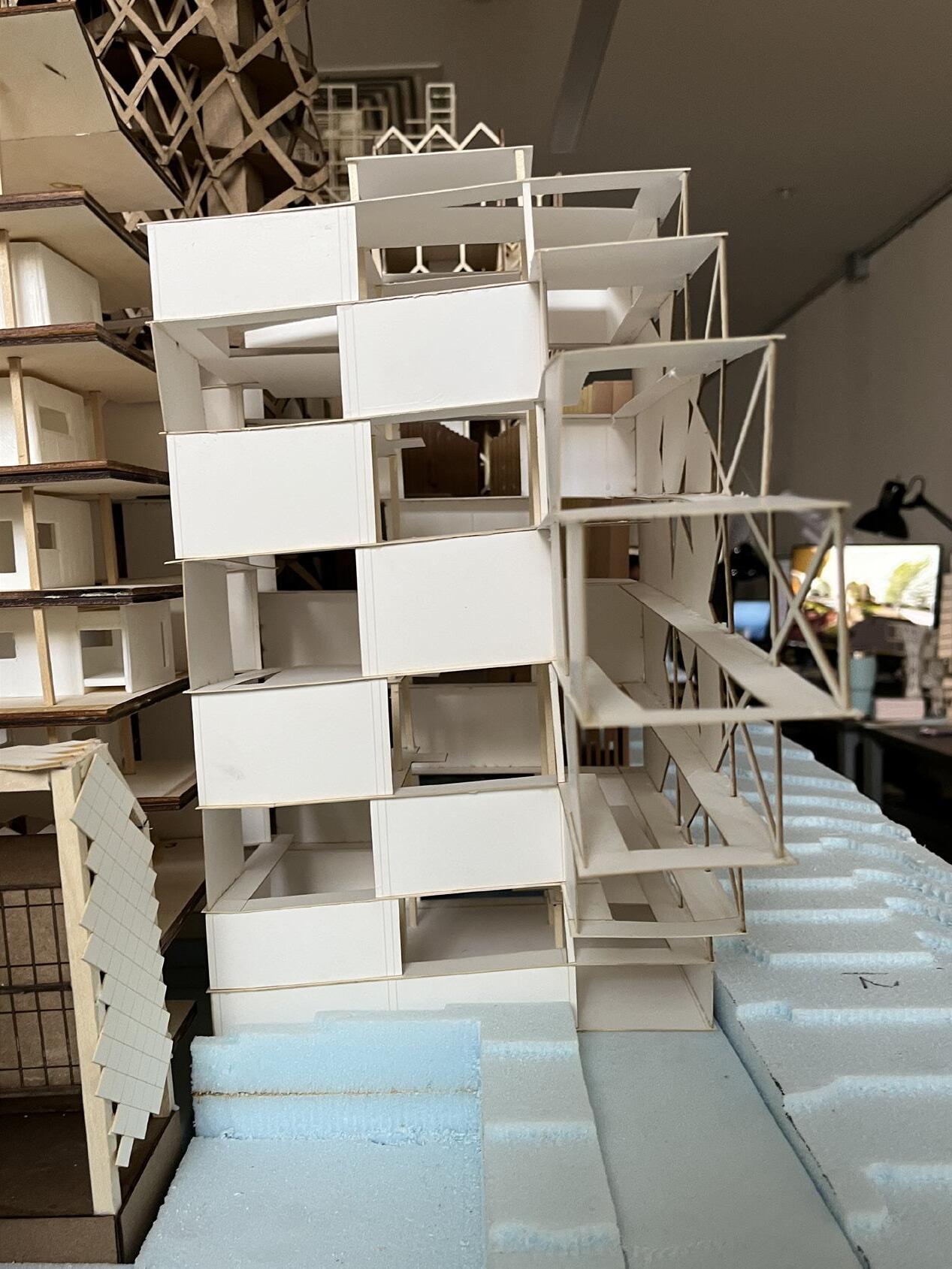












































































Greenwood Intersection
GREENWOOD INTERSECTION

To effectively address rainwater runoff concerns, the roof was designed with a slope, promoting efficient water drainage and management. This crucial aspect of the project ensures that the building remains environmentally friendly and reduces potential water-related issues. Taking note of the adjacent low-rise buildings, the team adjusted the residential sections of the structure to align with the commercial sections, ensuring a seamless integration with the surrounding architecture. Additionally, the corner entry was raised to the same height as the town’s iconic clock tower, further enhancing the building’s visual impact and creating a sense of cohesion within the neighborhood. The design concept for this project was significantly shaped by insights gathered during a site visit. The team observed that the location was situated along a bustling road, which produced substantial noise. To mitigate this, they strategically elevated the building at the corner to create a barrier against the noise. In order to harmonize with the urban landscape, the building’s design was extended towards the street, resulting in a wellintegrated and functional structure that responds to its context.
Location:Greenwood,Arkansas
Studio:ComprehensiveStudio(2022)
Professor: Pedro Luis Alves Veloso
SoftwarePrograms:Revit,Rhino,Enscape3D,Grasshopper,Cura,AdobePhotoshop,Illustrator, andlightroom
ANTHONY MANCIA ARCH 4016



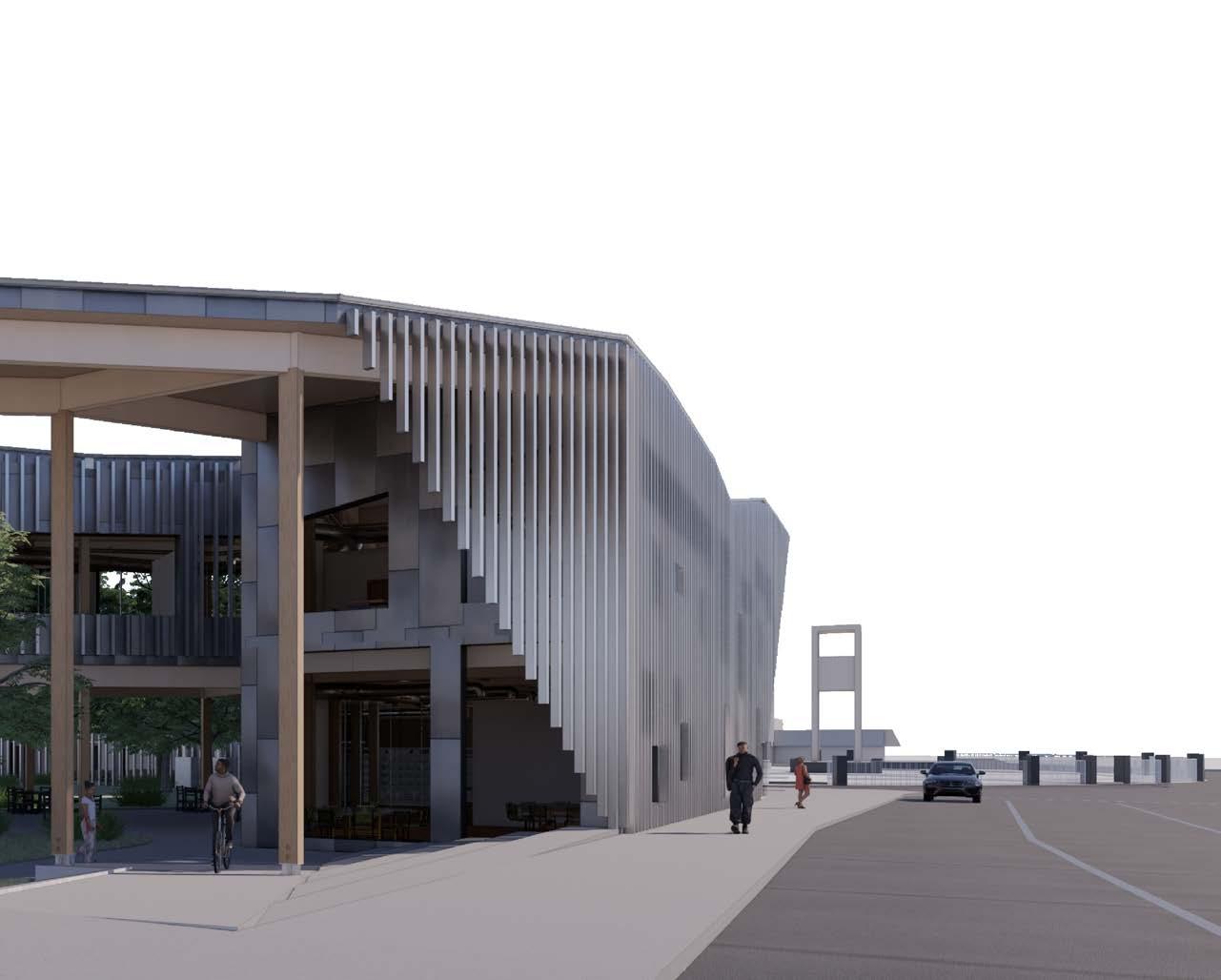





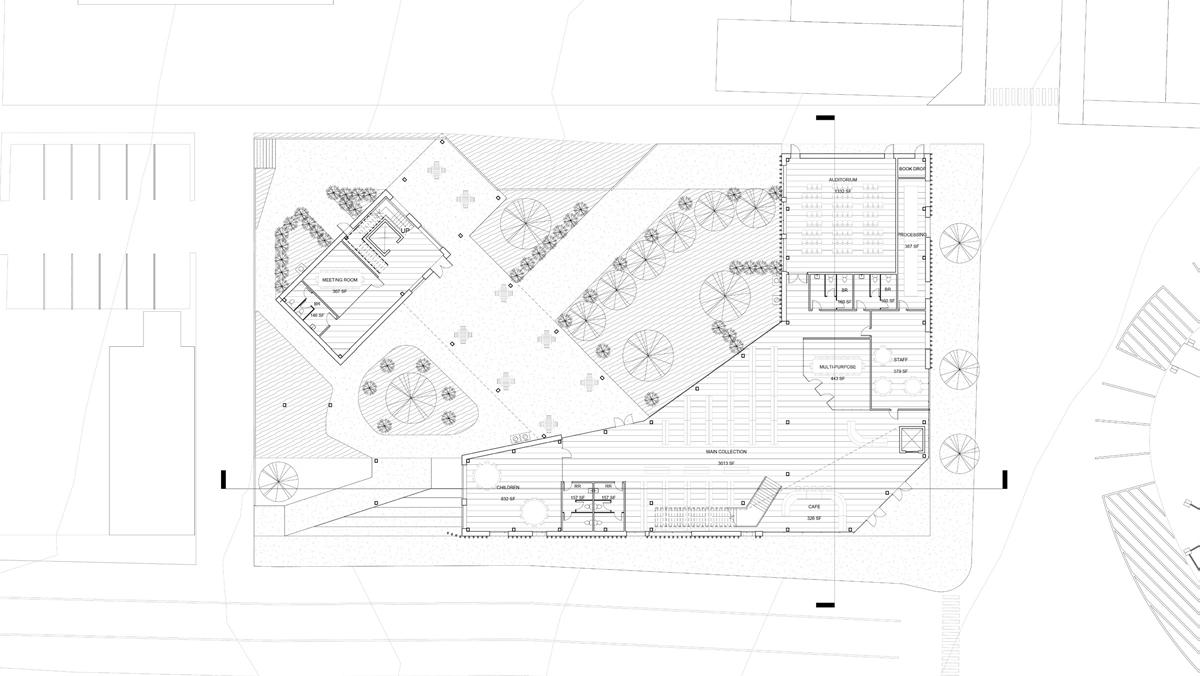


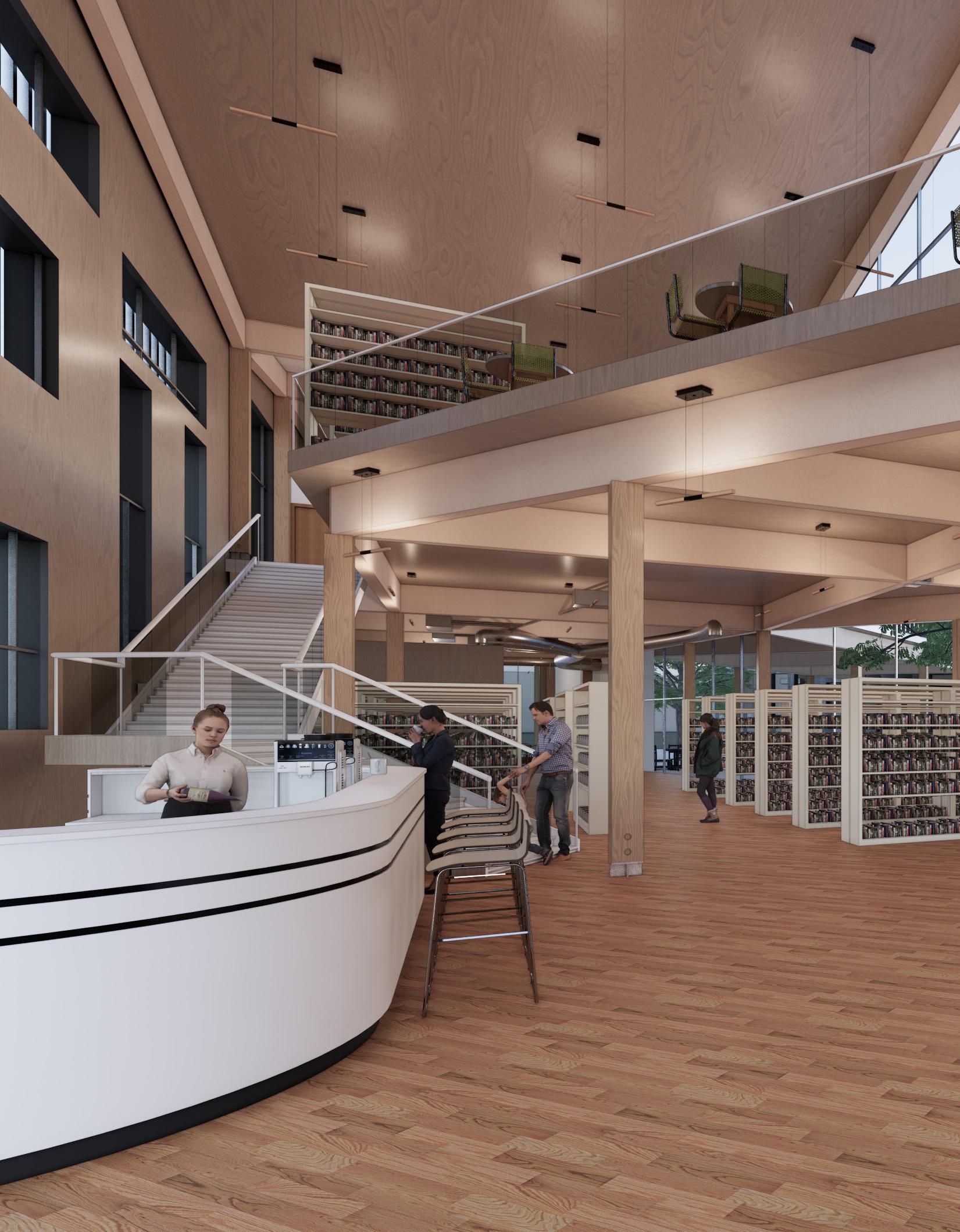

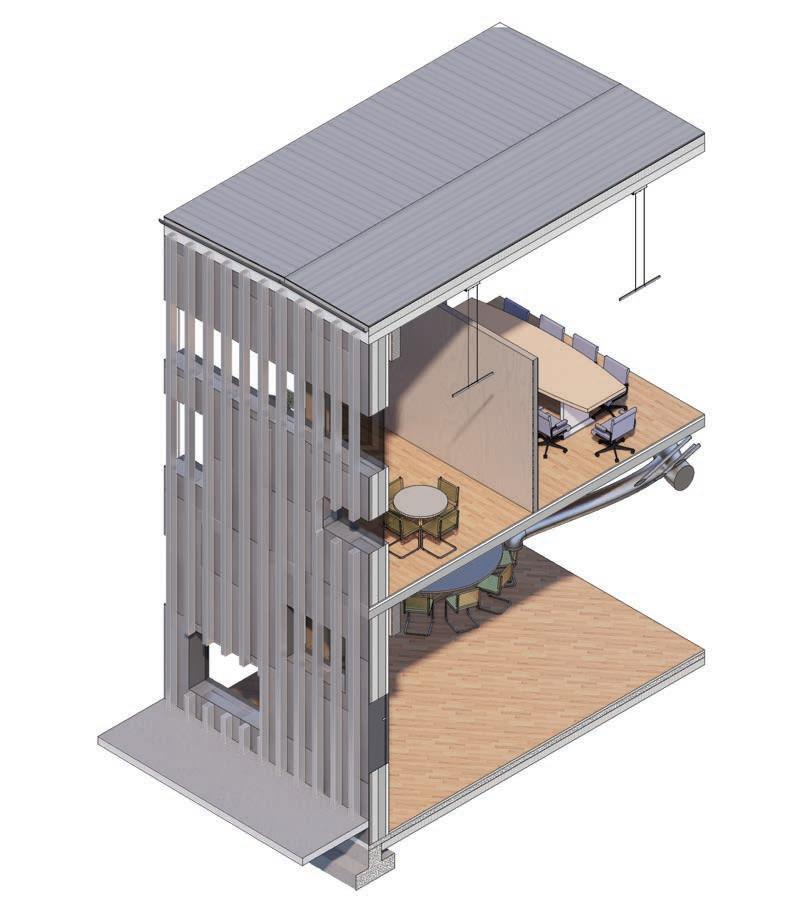

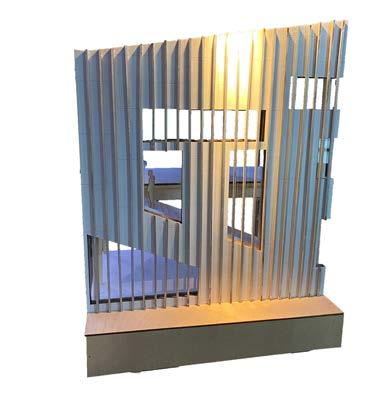
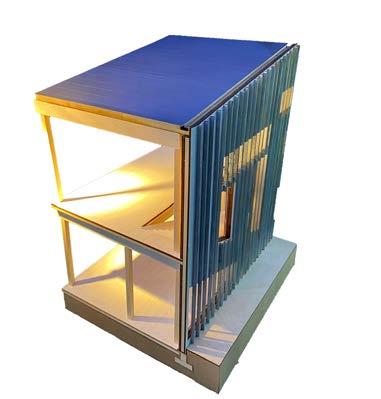
 Rendered Bay & Sectional Model
Rendered Bay & Sectional Model
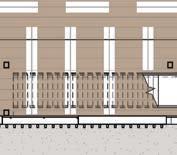
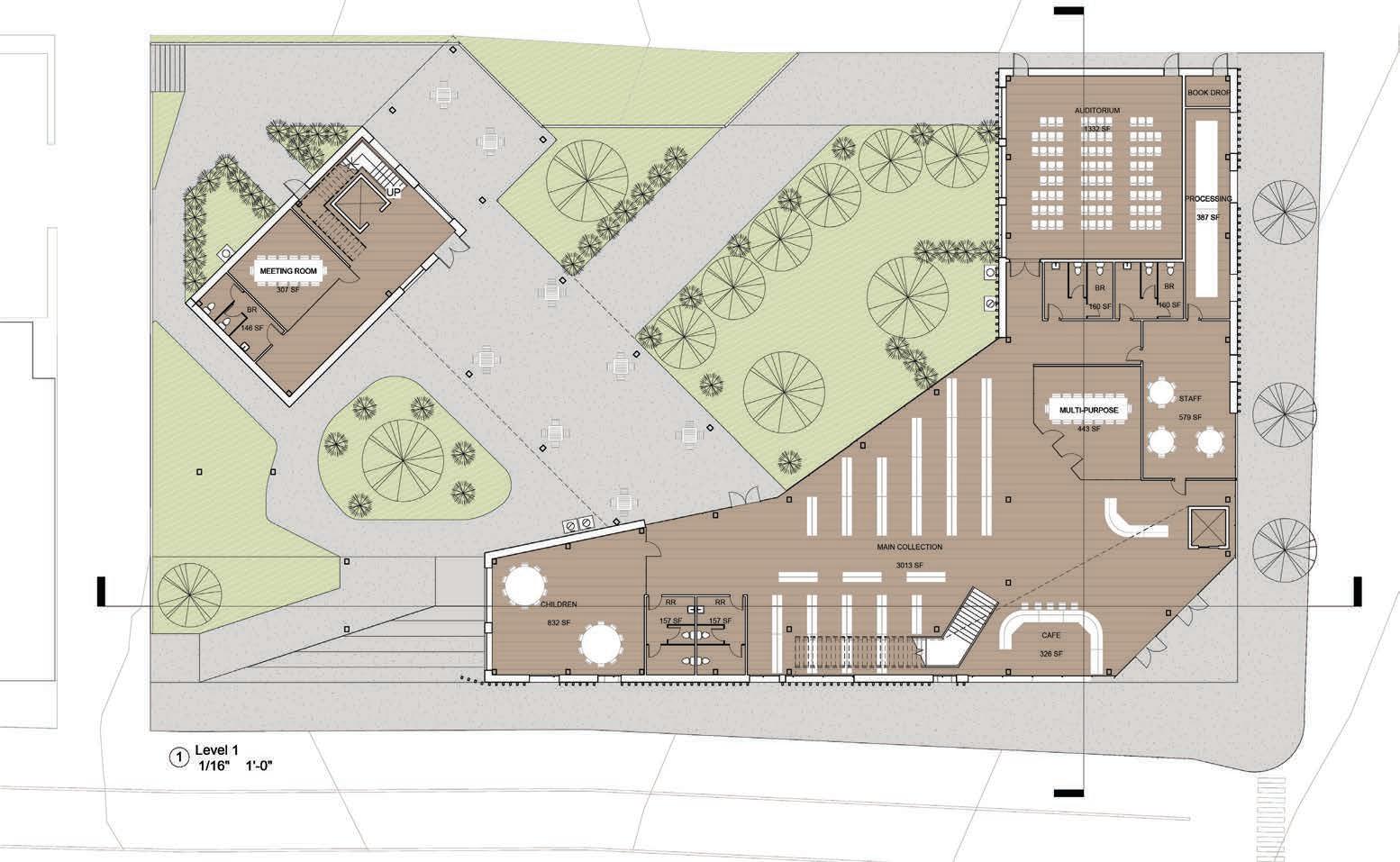
WATERPROOFING
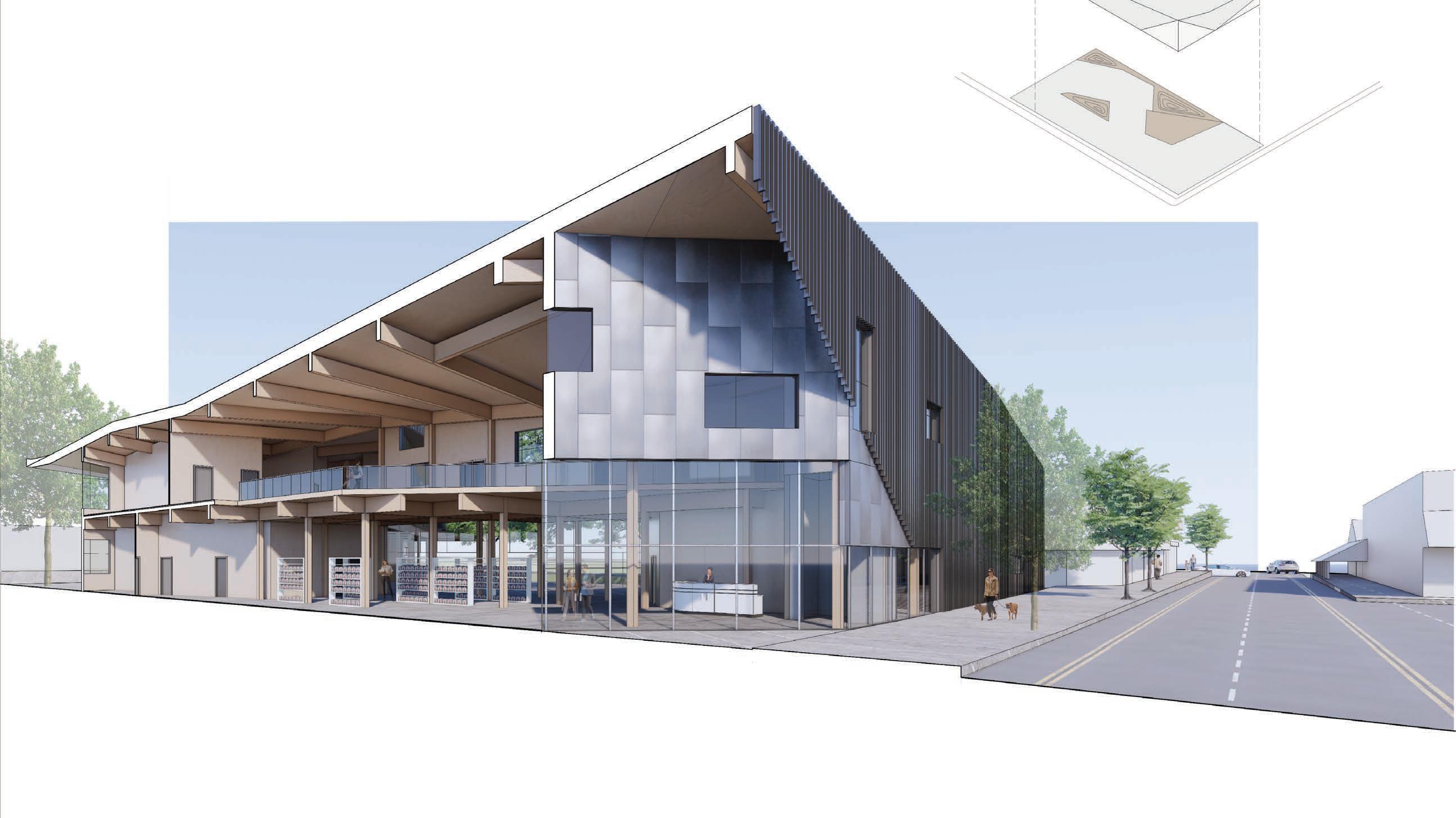

Bizmuth 83

This office was derived with the idea of creating a multi-purpose building set within a hill that has 75’ of elevation gain. The building terraces into the hill creating spaces for different functions. While creating terraces on a 20’ by 20’ gridded system, the form of the building was shaped to provide light to the back of the site as well as the spaces within. These multi-purpose terraces generate positive usage for the environment, water on the site, and public spaces for the community to enjoy. Buizmuth 83 has two main points of entry one located on hill street that seeks to provide a retail connection with grand central market and the metro station by establishing a plaza. The second point of entry in on 4th street and serves the offices spaces. The facade consists of a system of vertical fins that are rotated to negate the effects of solar glare. The louvers are made from brightly color terracotta to elude to the many 1920s building located downtown.
Location:LosAngeles,California
Studio:ArchitecturalDesignVI(2022)
Professor: Alison Turner
SoftwarePrograms:Revit,Rhino,Enscape3D,Cura,AdobePhotoshop,Illustrator,and lightroom

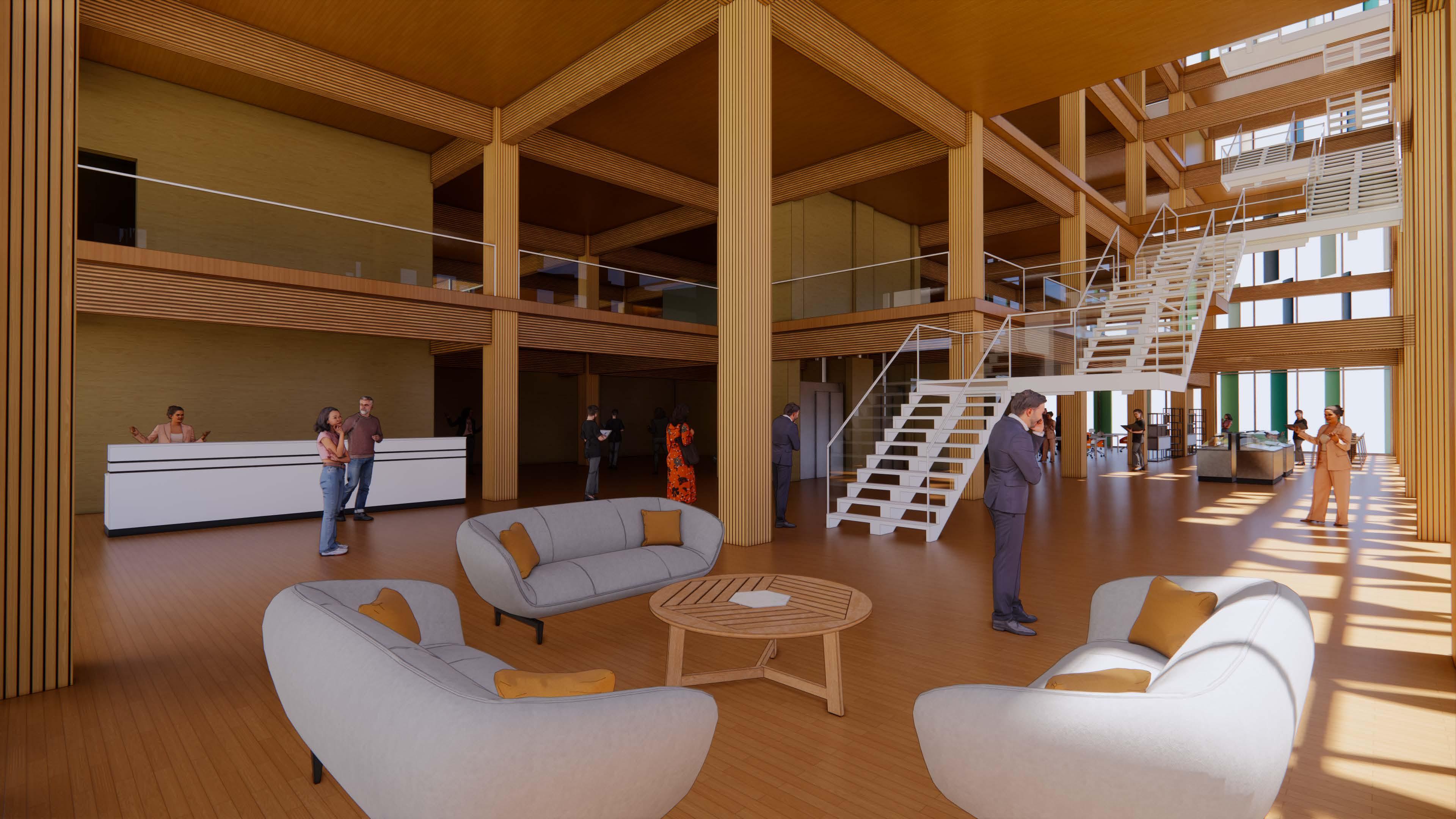

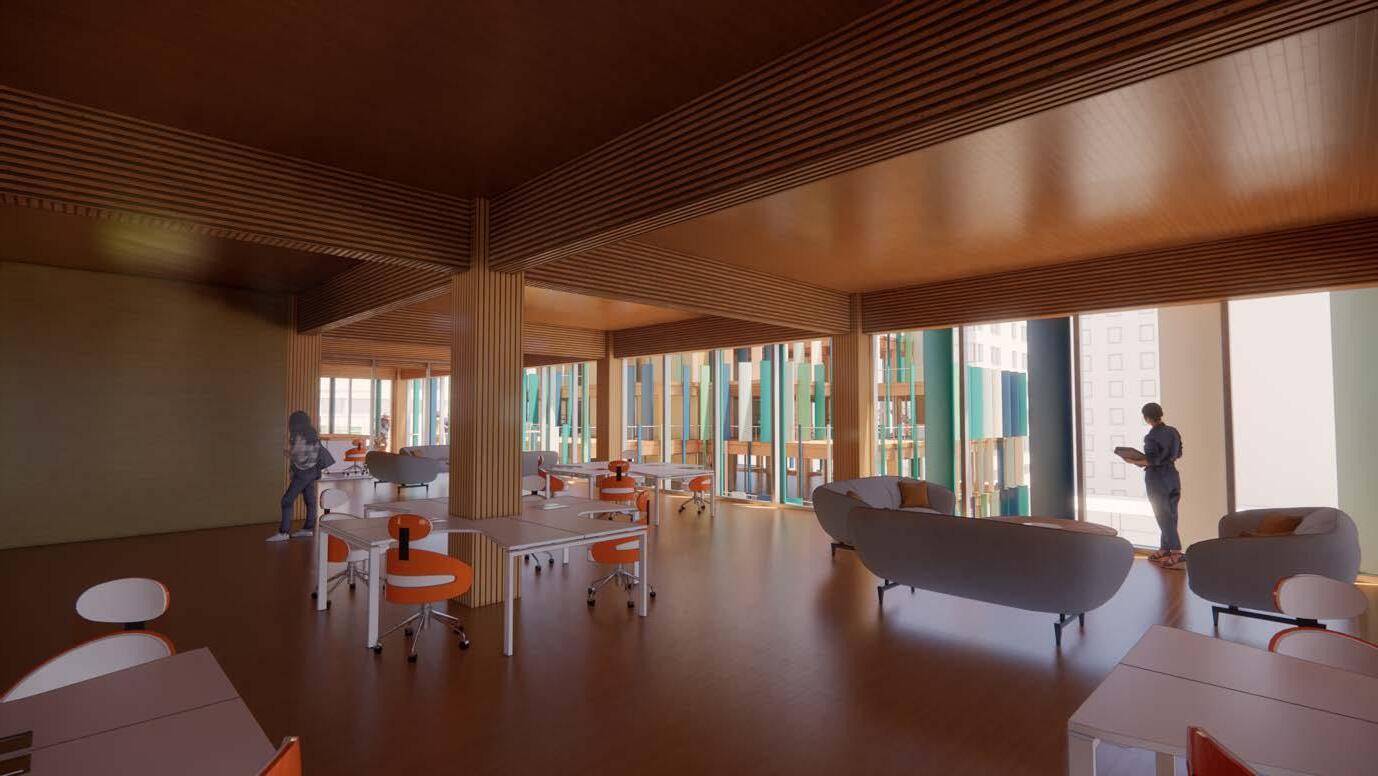
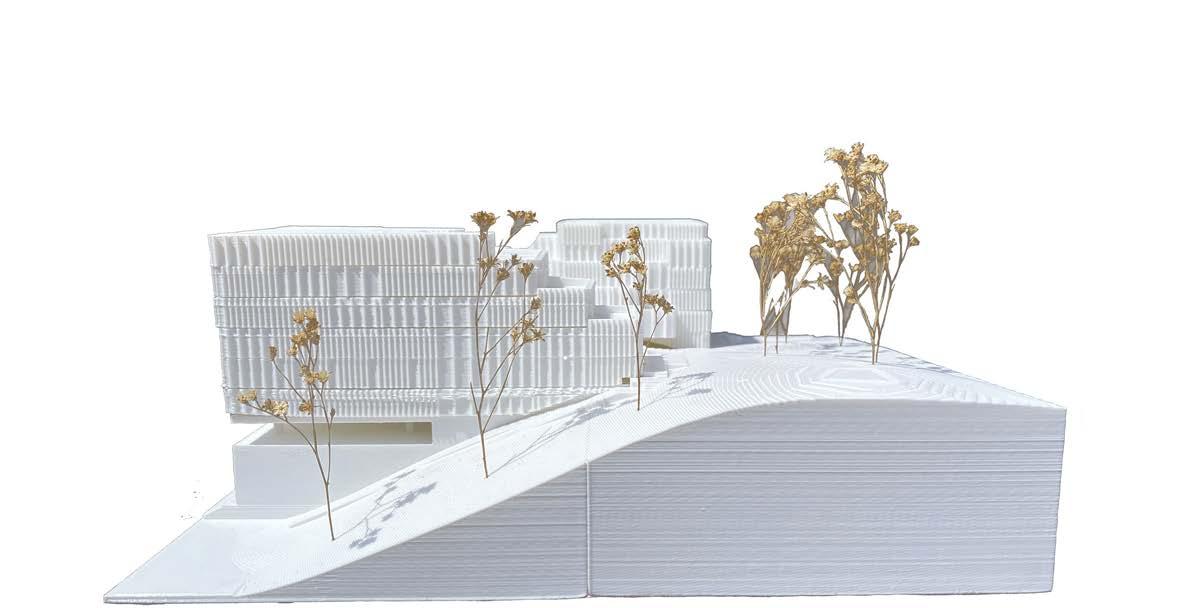



Block Parti

A housing development designed to bring together two diverse communities: live/work and intergenerational families. The cluster is divided into two social hubs connected by a linear courtyard, providing space for socialization and circulation. To accommodate parking, the intergenerational subunit’s central courtyard is raised to create an underground garage, providing a private raised courtyard for families. The live/work subunit also raises its central courtyard, extending the landscape into the site and reducing the building’s footprint. The development’s massing is based on an original Mar Vista h ome, stacked and divided into multiple dwellings. This organization allows the project to be replicated in any part of the neighborhood. Overall, the design integrates the development into the Mar Vista neighborhood while providing a useful amenity for residents and creating private and public spaces for socialization and relaxation.
Location:LosAngeles,California
Studio:ArchitecturalDesignV
Professor: Nathaniel Elberfeld
SoftwarePrograms:Rhino,Enscape3D,AdobePhotoshop,Illustrator,andlightroom
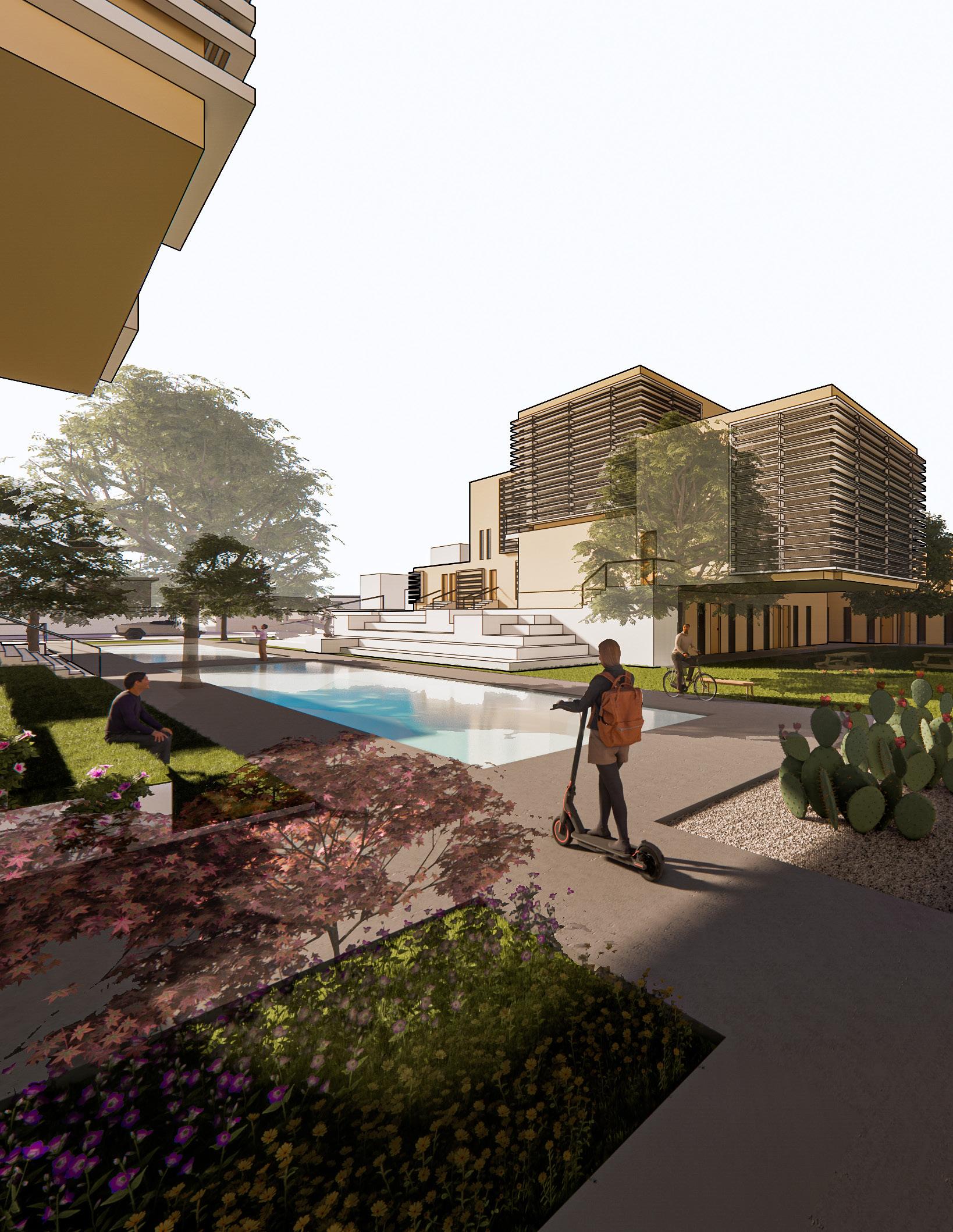
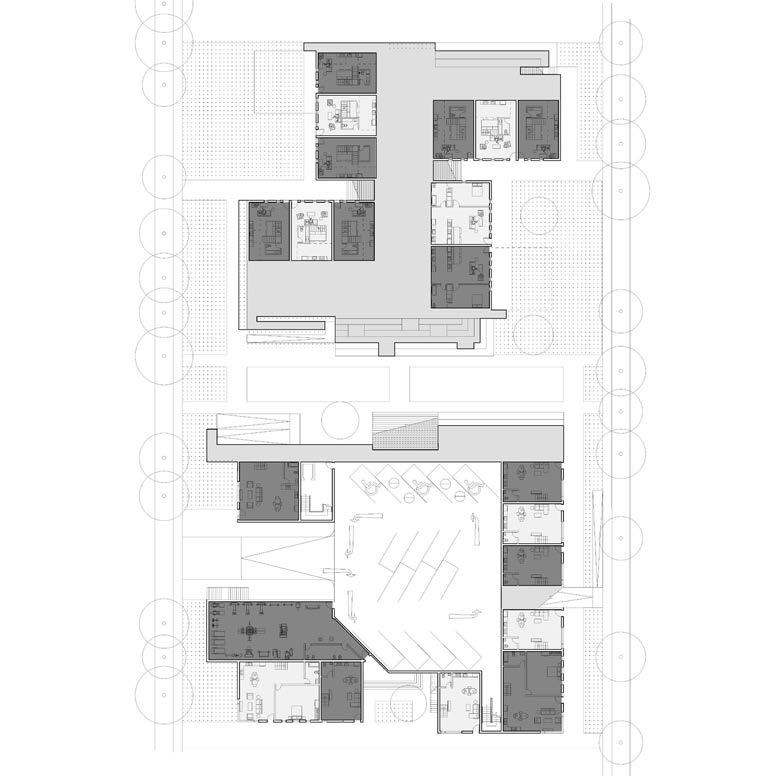

 1st
1st


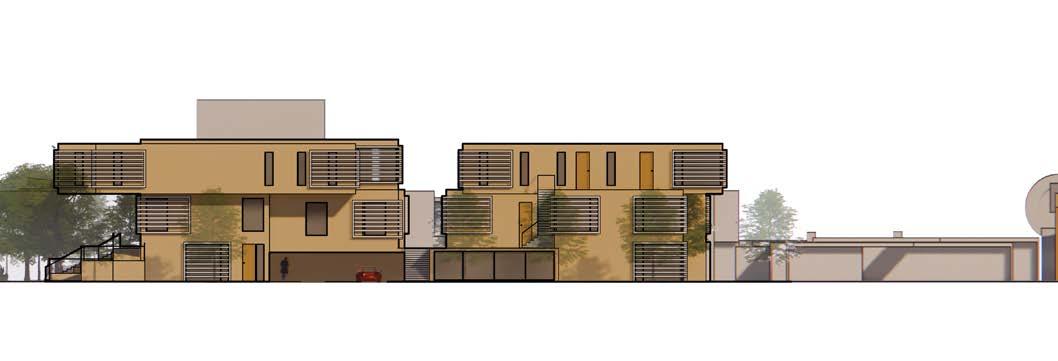 2nd
2nd






